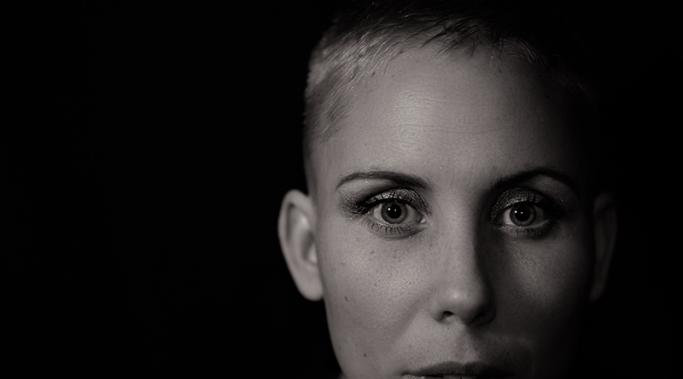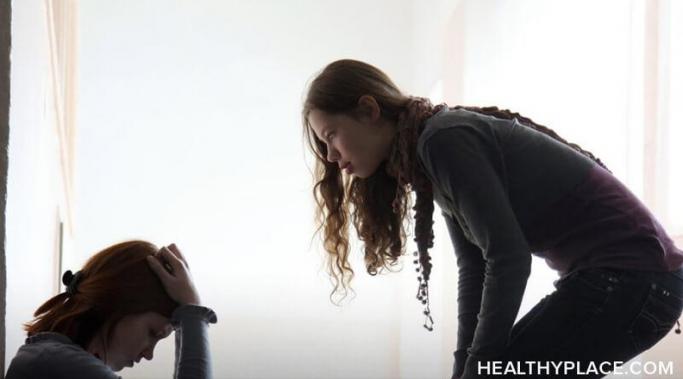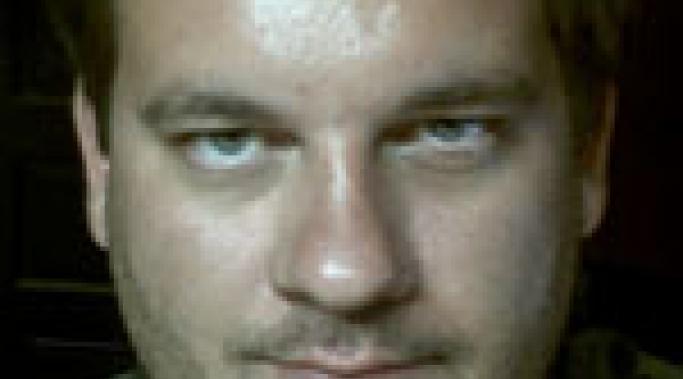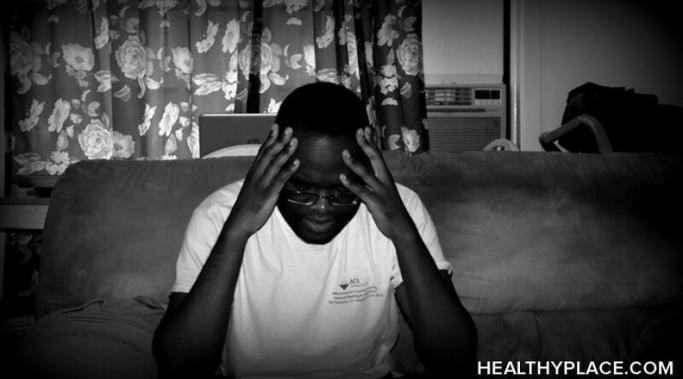Eye Movement Desensitization and Reprocessing (EMDR) therapy is primarily used as a treatment for PTSD. Discovered and developed by Francine Shapiro, Ph.D., EMDR uses eye movements, taps or tones to reprogram trauma victims' thinking. The end result can be relatively fast relief of PTSD symptoms, including the re-experiencing of the trauma and other symptoms resulting from horrific events like rape or combat. EMDR also helps with "little t" traumas having to do with beliefs about ourselves formed during childhood and other mental health disorders.
TV Show Blog
Stigma attached to major depression and other mental illnesses can be as difficult to deal with as the illness itself. The idea that "they won't understand" keeps depression sufferers silent and compounds their sense of isolation and negative thinking patterns.
Some people consider schizophrenia the most debilitating of mental disorders, and indeed, if you ask almost any unaffected person to describe the disorder, they will probably rattle off symptoms like paranoia, hallucinations, delusions, bizarre outbursts and the like. However, when diagnosed, the symptoms of schizophrenia can be kept at arms length with support from family and friends, medication and therapy.
Bill McPhee is living proof that schizophrenia can be controlled, and those with the disorder can live productive, loving lives.
Heather McCready, experienced days filled with "desperate sadness and intense darkness" and was diagnosed with depression and bipolar disorder and then hospitalized for mania and suicidal depression. Ms. McCready's voyage through mental illness deprived her of her creative abilities for six years. Finally, after all medicines failed, she underwent electroconvulsive therapy (ECT) and now enjoys fewer dark days.
Television and movies are the extent of my knowledge about autism and Asperger's Syndrome. I've been led to believe that people with autism are either like Rain Man (an autistic savant) or less gifted, empathy-denied individuals loved by their parents who understand their child cannot love them back.
Boy, have I been misled.
During the bulk of my abusive marriage, I didn't realize how isolated I was, but I did recognize the fact that other families weren't like mine. The shame of not knowing how to fix my problems overwhelmed me, and the frustration of having no one to talk to hurled me into depression. The guilt of being ill-functioning for my children and husband kept me low. It was a devastating downward spiral that ended only after I realized I was not alone in my struggles.
Perhaps my "aha moment" would have come more quickly if Band Back Together, the website created by Becky Sherrick Harks, was available to me then. Known as Aunt Becky to the Internet, Sherrick Harks created a website called bandbacktogether.com and invites everyone suffering from trauma, sickness, mental illness or abuse to share their story online [Note: As of right now, the website is hacked and not available, Sep. 29, 2017].
Those who suffer from agoraphobia alone or panic disorder with agoraphobia know too well the debilitating symptoms associated with this anxiety disorder. Agoraphobics live under a constant state of dread as though there is something "fundamentally wrong with the universe and stepping out the door will invite the wrongness in," says our guest, Kelly Brumbelow.
Agoraphobia forces sufferers to avoid panic attack triggers related to people, places and things. Over time and without treatment, the triggers can become quite extensive until the agoraphobic's movements are limited to only a few safe places.
Anxiety and worry are a part of life. Properly functioning anxiety helps us find our courage and overcome limitations. But sometimes, anxiety becomes dysfunctional and leads us down a road toward debilitating, circular thoughts and constant preoccupation with past or possible life events (read about anxiety attacks and anxiety attack symptoms). To top it off, when you discover that your anxiety is out of control, you may also feel anxious about your anxiety.
I love to pop some popcorn and watch an unassuming protagonist discover that his friends, his family, his whole life is not quite what it seems, and then go about the dangerous business of solving the mystery that has become his reality. Others may try to convince the hero that he’s confused or delusional, but part of what I love about a good psychological thriller is that the hero is always vindicated in the end. And while there are real people whose lives are as filled with conspiracy and intrigue as a box office hit, many of them are living in a false world made up of schizophrenic delusions. And it’s not a glamorous world. It’s a world fueled by mental illness, by the symptoms of schizophrenia.
There are about as many men with bipolar disorder as there are women. But is living with bipolar disorder essentially the same for men as it is for women? And what about the relationship between race and mental illness? Though the illness is the same, gender and race may shape life with bipolar disorder in profound ways that most of us have never even considered.









